#orgoglio e pregiudizio
Text
Please reblog for a larger sample size.
#pride and prejudice#de veir dochters bennet#orgoglio e pregiudizio#bride and prejudice#the lizzie bennet diaries#wishbone#mr darcy#polls
158 notes
·
View notes
Text

Orgoglio e pregiudizio - Jane Austen
#pensieri#frasi#pensieri personali#frasi e citazioni#citazioni#frasi tumblr#frasi belle#citazione vita#frasi vere#amore#orgoglio e pregiudizio#jane austen
24 notes
·
View notes
Text

23 notes
·
View notes
Text

Elizabeth Bennett and Mr. Darcy by Liz Parkes
38 notes
·
View notes
Text
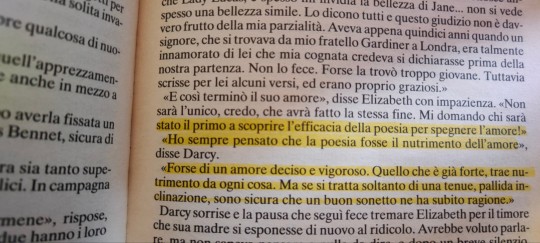
« Mi domando chi sarà stato il primo a scoprire l'efficacia della poesia per spegnere l'amore! »
« Ho sempre pensato che la poesia fosse nutrimento dell'amore », disse Darcy.
« Forse di un amore deciso e vigoroso. Quello che è già forte, trae nutrimento da ogni cosa. Ma se si tratta soltanto di una tenue, pallida inclinazione, sono sicura che un buon sonetto ne ha subito ragione. »
#citazioni#citazione#citazioni libri#citazione libro#orgoglio e pregiudizio#jane austen#jane austin citazioni#frasi#classici#letteratura#Orgoglio e Pregiudizio#Orgoglio e pregiudizio#Jane Austen#Jane Austen citazioni#Jane Austen libri#letteratura classica#classici da leggere#libri letti#poesia#poesie#amore
7 notes
·
View notes
Text
Dal giorno in cui ci siamo persi,
Vivo con una costante sensazione di mancanza.
Mi nutro di ricordi ormai meno dolorosi.
E qualche volta mi capita ancora di pensarti,
Come sarebbe stato viverti,
Come sarebbe stato se solo tu avessi voluto vivermi..
E non avessimo pensato solo a dividerci.
Ridicoli.
Tutti questi occhi sconosciuti che mi guardano,
Ma non ci vedo niente di speciale.
Perché in realtà sono ancora persa nel riflesso dei tuoi, quando avevano ancora voglia di amare.
"Me".
#thoughts#nevermind#amore#frasi per pensare#frasi d'amore#amore finito#dolore#pensieri#timothy chalamet#orgoglio e pregiudizio#ombre sul cuore#cuore rotto#cuore che piange#mancanza#ti amo ancora#ti aspetto#fa male#c'è ancora domani#scrivimi ancora#resta con me#remember#ricordati di me#dimenticare#abbandonata#senza di te#tradimento#rabbia#solitudine#vero amore
7 notes
·
View notes
Link
Really enjoying these videos, contrasting the ways various adaptations have adapted particular sections of P&P and how a different focus creates different characterisations. Haven’t finished them all yet, but here are some highlights from the new-to-me adaptations (namely, Italian P&P 1957 (Orgoglio e pregiudizio), Dutch P&P 1961 (De vier dochters Bennet) and my new favourite, P&P 1967). 1995 and 2005 are very well known, and I think both 1980 and the sometimes peculiar choices made by 1940 are reasonably known.
Italian Mr Bennet does up the back of Mrs Bennet’s dress. They’re going to Netherfield Castle for Mr Bingley’s ball, though nobody has as yet met Mr Bingley. Mr Bennet stays home to read in his dressing gown. This is a Mr Bennet wish fulfilment change - he does not have to call on anyone, make any introductions, anything.
Dutch Darcy tells Elizabeth that he will try to help track down Wickham and tells her not to despair with the reassurance that things worked out all right for Georgiana, therefore perhaps it will be fine with Lydia too
When Dutch Darcy tells all to Elizabeth in person after his failed proposal. She asks him, talking of Jane, “Do you know what it means, to lose someone whom you love with your whole heart?” Darcy says in a whisper, “Yes”.
Dutch Darcy kisses Elizabeth’s hand in farewell and wishes her well. As he leaves, we see her raise her hand to her own lips.
1967 Georgiana (here called “Georgina” - why?) runs out onto the balcony in tears when Caroline mentions Wickham. Darcy follows her. This seems very overdone: it seems like the Bingleys would notice this.
1967 Mrs Bennet is very aggrieved that Lady Catherine went away without taking leave of her. That is not good manners. Darcy apologises for his aunt and excuses himself so that he can apologise to Elizabeth separately. (Cue second proposal scene)
1967 makes much of the lively and making-fun character of Elizabeth. We have all the ball exchanges with Sir William Lucas. She even makes a little fun when Darcy beings to confess the story of Georgiana agreeing to an elopement - she rises, something in her face lights up and says, “Your sister, of whom everyone speaks so highly?” Darcy is defensive against this judgement and says that G. "was less than sixteen at the time; no one can blame her for her lack of judgement”.
1967 Georgiana “acknowledged the whole to me” - like in the book!
1967 includes a lot of little domestic scenes from the book: we have the conversation between boy Lucas and Mrs Bennet about how if he were rich and drinking a bottle of wine a day, he would be drinking far too much and she would come and take it away! Some of the scene which in the novel are just reported are shown directly here: Mrs Bennet lists her menu for the dinner Bingley declines, Kitty reads Lydia’s elopement letter at breakfast.
Dutch Darcy doesn't want to dance, he "couldn't think of holding one of those rejects, even just for a dance"!!!
Bingley says being as picky as Darcy would turn every meal to dust, Darcy responds 'careful it isn't your last meal' It is Bingley who is 'every savage can dance-d' . I like their conversation, the friendly relations come off well
Italian Darcy (he is called David) “every savage can dance”s Mrs Bennet. She answers, "oh, so you prefer to talk?” "Yes, but not with everyone"!
Dutch Mrs Bennet says Netherfield is "three kilometers" from them. Perhaps Dutch Mrs Bennet is actually a French spy. Also they keep offering people bonbons.
Dutch Elizabeth, after overhearing Darcy, 'Why don't we have the guillotine in England?" :DD
When Dutch Charlotte reminds her of Darcy's large estate, Elizabeth is unimpressed - did Darcy ever work for it? "What virtue is it to only inherit?"
Dutch Mrs Bennet after the first ball is trying to matchmake Darcy with Elizabeth. She acknowledges his remark, but says he would change his mind if he saw more of Elizabeth and asks Mr Bennet when they should invite Darcy for dinner
After the snub, Dutch Darcy approaches Elizabeth of his own accord. No Sir William Lucas to start the conversation. Dutch Darcy is still rejected
Italian Elizabeth turns up with the wet Jane at Netherfield. She wasn't invited, but Jane was sheltering from the rain en route and Elizabeth caught up with her
Italian Darcy and Fitzwilliam make their journey to Rosings via Longbourn. There, Darcy tells Fitzwilliam to go on ahead, so Fitzwilliam arrives at Rosings alone. There, he tells Elizabeth that Darcy likes her greatly. She says that it’s impossible and if he wants to be gallant, to go ahead but without involving other people.
Italian Collins says Lady Catherine has been kind to him since his childhood. Lady Catherine describes Collins as a “real imbecile”. She keeps telling him to be silent.
Italian Fitzwilliam, when told to answer frankly by Lady Catherine, addresses her as “my general”. He compliments Elizabeth on standing up to her, and says that even her favoured Darcy does not dare - Elizabeth fantasised about seeing Lady Catherine order Darcy around like she does Collins - “he’d be happy to be commanded by strokes of the fan”!
#pride and prejudice#Jane Austen#pride and prejudice 1967#de vier dochters bennet#orgoglio e pregiudizio#Elizabeth Bennet#Fitzwilliam Darcy
10 notes
·
View notes
Text
"Sono poche le persone a cui io voglio veramente bene e ancor meno sono quelle di cui io nutro una buona opinione. Più conosco il mondo e meno ne sono entusiasta."
Jane Austen
135 notes
·
View notes
Text
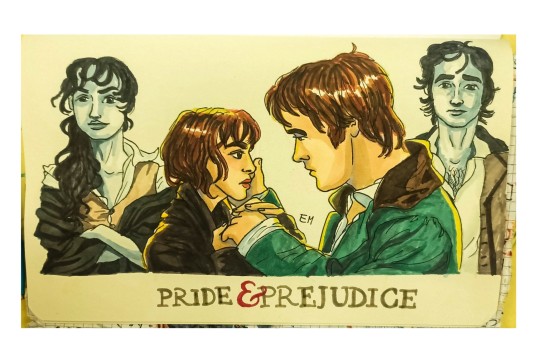
Prιdᥱ ᥲᥒd Prᥱjᥙdιᥴᥱ
Since I was 13 I am obsessed with this film 🌟🙌🏼.
#comicstyle#drawing#markers#fanart#enemies to lovers#pride and prejudice#pride and prejudice 2005#orgoglio e pregiudizio#jane austen#jane austen books#elizabeth bennet#mr. darcy#mr darcy#elizabeth x darcy#darcy x elizabeth
18 notes
·
View notes
Text
C'è un'altra lezione che dobbiamo imparare, la più importante:
nessuno potrà amarci in maniera sana e soddisfacente finché non impareremo, noi per prime, a innamorarci perdutamente di noi stesse. 🩷
Cit. "L'amore si impara leggendo"

#pensieri per la testa#persa tra i miei pensieri#amore#amare#amarsi#amati#sei perfetta così come sei#autostima#accettati#riflessione#riflettete#orgoglio e pregiudizio#lezione di vita#frasi amore#frasi vita#citazione#l'amore si impara leggendo#libro#libri#leggere#lettura#leggere che passione#book#books#bookslover#booklover#bookblr
5 notes
·
View notes
Text

Orgoglio e Pregiudizio
4 notes
·
View notes
Text
Letture di gennaio
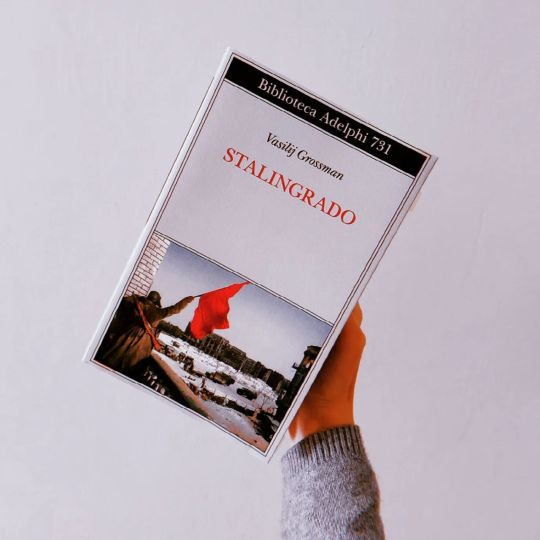

Stalingrado - Grossman
Orgoglio e pregiudizio - Austen
@serereads
#book blog#bookblr#books#lettureconsigliate#letture di gennaio#januaryreads#vasilij grossman#jane austen#stalingrado#orgoglio e pregiudizio
15 notes
·
View notes
Text

Orgoglio e pregiudizio - Jane Austen
#pensieri#frasi#pensieri personali#frasi e citazioni#citazioni#frasi tumblr#frasi belle#citazione vita#frasi vere#amore#citazione libri#jane austen#orgoglio e pregiudizio
18 notes
·
View notes
Text
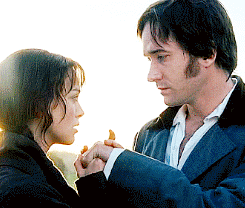
13 notes
·
View notes
Text
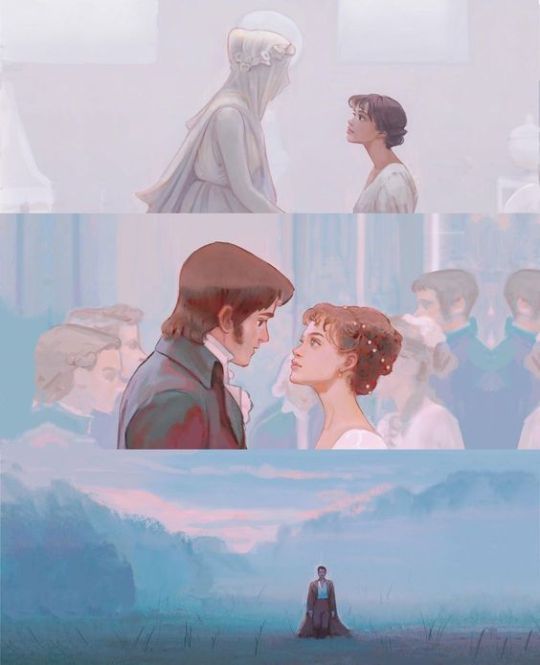
Art by Tasia M S
109 notes
·
View notes
Text

« Tuttavia », disse Miss Lucas, « il suo orgoglio non è così criticabile come in altri casi, perché ha qualche attenuante. Non fa meraviglia che un giovane intelligente, con un bel nome, ricco, al quale tutto arride ed è favorevole, abbia una grande opinione di sé. Direi quasi che ha un certo diritto di essere orgoglioso. »
« E' verissimo », rispose Elizabeth, « e potrei scusare facilmente il suo orgoglio, se non avesse ferito il mio. »
« L'orgoglio », osservò Mary che teneva a dimostrare la profondità dei suoi pensieri, « è un difetto assai comune. Da tutto quello che ho letto, sono convinta che è assai frequente; che la natura umana vi è facilmente incline e che sono pochi quelli tra noi che non provano un certo compiacimento a proposito di qualche qualità - reale o immaginaria - che suppongono di possedere. Vanità e orgoglio sono ben diversi tra loro, anche se queste due parole vengono spesso usate nello stesso senso. Una persona può essere orgogliosa senza essere vana. L'orgoglio si riferisce soprattutto a quello che pensiamo di noi stessi; la vanità a ciò che vorremmo gli altri pensassero di noi. »
#mary bennet come sei sottovalutata#citazioni#citazione#citazioni libri#citazione libro#orgoglio e pregiudizio#jane austen#jane austin citazioni#frasi#classici#letteratura#Orgoglio e Pregiudizio#Orgoglio e pregiudizio#Jane Austen#Jane Austen citazioni#Jane Austen libri#letteratura classica#classici da leggere#libri letti
3 notes
·
View notes